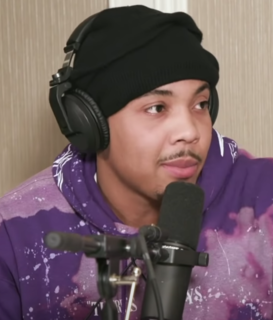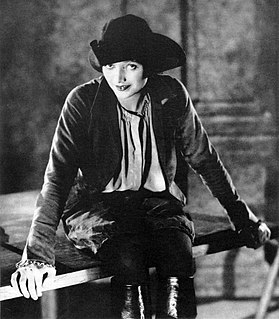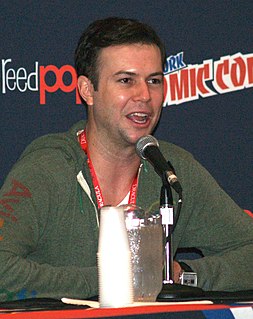A Quote by Howard Rheingold
There are performances in which the people who have the best muscle skills and musical history may be on the stage, but it's not? - ?like a Dead show is not like a usual sit-down performance; the audience does participate.
Related Quotes
I always like to break out and address the audience. In 'The History Boys', for instance, without any ado, the boys will suddenly turn and talk to the audience and then go back into the action. I find it more adventurous doing it in prose than on the stage, but I like being able to make the reader suddenly sit up.
The nice thing about live performance is that I've never, ever been let down. Partly I'm lucky that my audience self-selects itself. Generally they know what they're in for, and generally we all just like each other and get along. But I always find one or two or a dozen really interesting people in the audience who make the show different. And that's one of the things I really like about performing.
I'm not saying Christopher Pyne and all them are my enemies, they're great blokes, shouted me a few beers a couple of times which I like, it's - we have got to sit down with the people like that. We have got to sit down with people like that and negotiate and work our way through. If we don't do that then we're just going to continue the sins of the past.
You see, what is my purpose of performance artist is to stage certain difficulties and stage the fear the primordial fear of pain, of dying, all of which we have in our lives, and then stage them in front of audience and go through them and tell the audience, 'I'm your mirror; if I can do this in my life, you can do it in yours.'
You see, what is my purpose of performance artist is to stage certain difficulties and stage the fear the primordial fear of pain, of dying, all of which we have in our lives, and then stage them in front of audience and go through them and tell the audience, I'm your mirror; if I can do this in my life, you can do it in yours.
You know, you're doing the same show every day, and your inspiration, you have to look no further than the fact that you know people travel across the country to see you. In a lot of cases, this is that audience's only chance to see the thing, and so, that's what gets you up in the morning, and that's what gets you giving your best performance on stage, is the awareness that this audience is ready for it, and here to have an experience, and so in turn are you.
The world of the stage and the performance on the stage usually does not tend to translate very well - it doesn't tend to hold very well - once cameras are on it; it's not like it's terrible or embarrassing or bad anything, but, I, as an actor, would perform a role differently for an audience than I would for just cameras.
Whatever field you can do that, that's where you want to do it, and I think that's why people like David Fincher and Ridley Scott are interested in it, too, because when you sit down on a meeting in HBO and they're like, "More, more." You're just like, "Oh yeah, I love this." Sometimes it's a little harder in film. I think also it's a great audience, take advantage of it. It's a great audience.



































